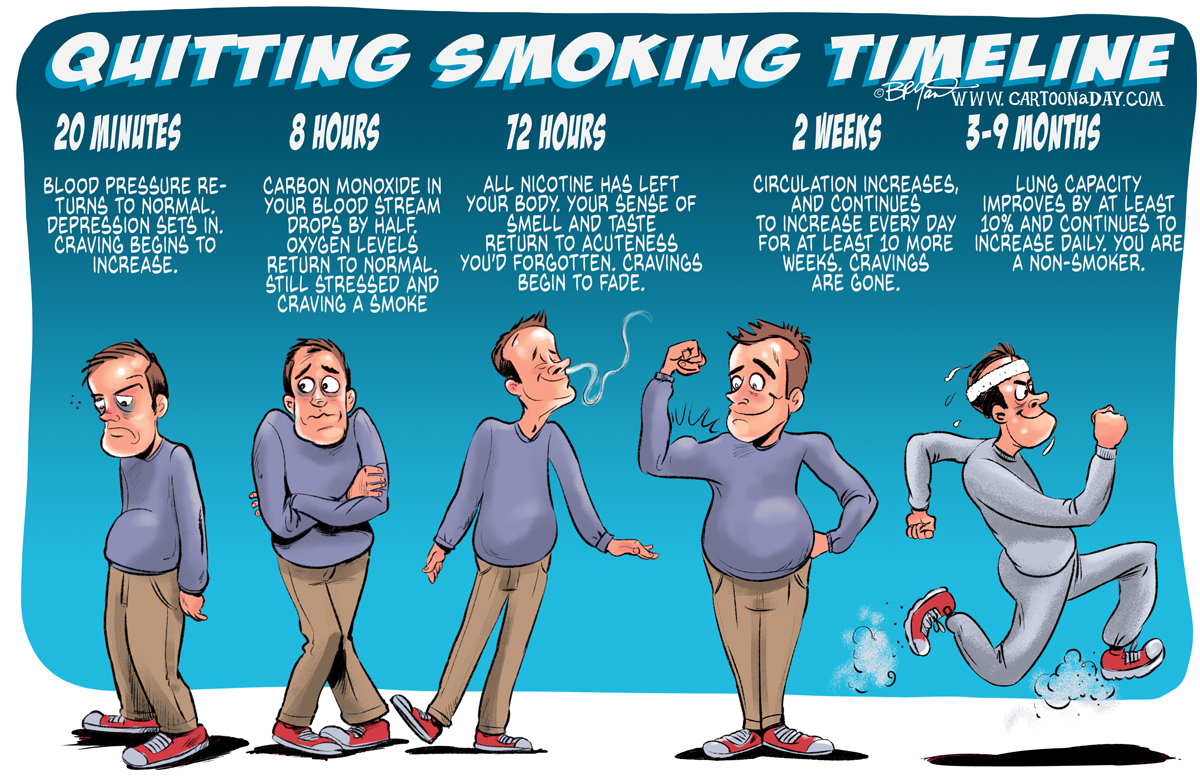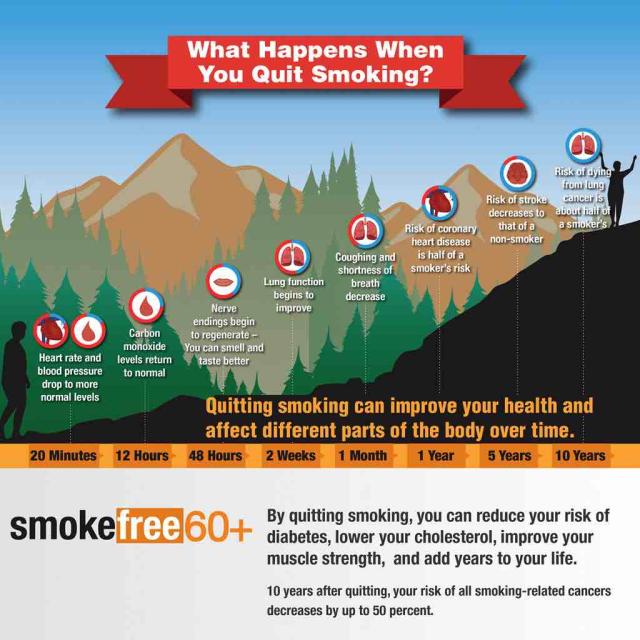
20 YearsĪfter 20 years, it’s estimated that you have saved over $71,000 by not buying cigarettes. Starting 15 years after quitting tobacco, your risk for heart disease is now the same as if you had never smoked. Within 10 years after quitting, your risk of dying from cancer is now half that of a smokers'. Smoking accelerates the development of blood clots, which are a factor in strokes. 5 YearsĪfter five years, your risk of having a stroke drops to the same risk levels as nonsmokers. Women’s risk of cervical cancer is also decreased. 2 to 5 Yearsīetween two and five years after quitting, the risk of developing mouth, throat, esophagus and bladder cancers is reduced by half. This risk decreases by half when you quit smoking. The risk of developing heart disease is two to four more times as likely in smokers. Smoking has been proven as the direct cause for 1 in 5 heart disease deaths. 1 YearĪbout one year after quitting, the risk of getting coronary heart disease is only half as high as smokers. Even the smallest of functions within the lungs will begin to work properly and shortness of breath and coughing will decrease even further. One to nine months after quitting, the lungs will begin to repair themselves. Your withdrawal symptoms will also start decreasing.

You will be able to do physical activity without feeling winded or sick. Coughing and shortness of breath decrease. 1 to 9 WeeksĪround one to nine weeks after quitting, "smoker" norms become less pronounced. Even in a small amount of time, like 14 days, your body is becoming more healthy. As time progresses, they will begin to repair themselves. As stated above, cigarette smoke damages your blood vessels. Two weeks after quitting circulation and lung function improve. Each time you smoke, the nicotine your body needs to get that “buzz” is amped up and requires more frequent cigarettes. 3 Daysīy day three, there is no more nicotine in your body. Smoking also increases your risk for blood clots, another major issue related to heart attacks. People who smoke have a 70% higher chance of having a heart attack because of the cardiovascular dangers associated with smoking. 24 HoursĪfter one day, your risk of heart attack drops. Once the carbon monoxide is gone, there is more oxygen in your body. Carbon monoxide replaces oxygen in the blood cells making it so that your heart is not getting enough blood. 12 HoursĪround 12 hours after quitting smoking, the level of carbon monoxide in the blood drops back to normal.

As your body rids itself of the chemicals in cigarettes, your hands and feet will start to feel warmer. Peripheral veins and arteries are located in the arms, hands, legs and feet and supply oxygen to the body.

Within two hours of smoking your last cigarette, your peripheral circulation will improve. This very short period of time allows your body to begin to repair itself. Nicotine harms the insides of blood vessels and reduces the amount of oxygen the heart receives, making the heart beat faster and the damaged blood vessels work harder. Only 20 minutes after quitting, your heart rate and blood pressure will drop closer to normal levels. If you decide now is the time to make that resolution and finally quit smoking, sign-up today for our smoking cessation class or call (515) 574-6258. Find out how cigarettes affect your health and learn what happens to your body from the moment you decide to quit smoking. It’s important to your heart and lungs to quit smoking and improve your overall health. Around this time every year, people make resolutions to quit smoking for good.


 0 kommentar(er)
0 kommentar(er)
